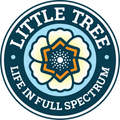An Alternative Option
Cannabinoids, particularly cannabidiol (CBD) and tetrahydrocannabinol (THC), have gained attention for their potential benefits in sleep and pain management. CBD, the non-psychoactive component of cannabis, is especially noted for its calming and anti-inflammatory properties, making it a promising option for individuals struggling with chronic pain or sleep disorders. THC, although psychoactive, can also play a role in sleep by helping to relax muscles and reduce discomfort. Together, these cannabinoids interact with the body’s endocannabinoid system (ECS), which regulates various physiological processes, including pain perception and sleep cycles.
One of the key benefits of cannabinoids in sleep management is their ability to address the root causes of sleep disruption, such as anxiety, stress, and physical discomfort. CBD, in particular, has been shown to reduce anxiety levels, which is often a major contributor to insomnia or poor-quality sleep. Unlike many conventional sleep medications, which can lead to dependency or have unwanted side effects, cannabinoids offer a more natural approach to improving sleep without the risk of addiction or severe hangover effects. Research suggests that cannabinoids can promote more restful sleep by improving the duration of deep sleep stages, contributing to better overall sleep quality.
Cannabinoids also offer significant potential as an alternative to traditional pain management medications, such as opioids or over-the-counter pain relievers. Chronic pain sufferers, whether due to conditions like arthritis, fibromyalgia, or injury-related pain, may find relief in the anti-inflammatory and analgesic properties of cannabinoids. They work by influencing receptors in the ECS to reduce the intensity of pain signals sent to the brain, potentially leading to more sustainable and less harmful pain relief compared to conventional pharmaceuticals. The ability to manage pain without the severe side effects of opioids, such as sedation, dependency, or tolerance buildup, makes cannabinoids an appealing option for long-term pain management.
Additionally, cannabinoids are being considered as a safer alternative to alcohol for those looking to relax or unwind. While alcohol can disrupt sleep patterns, contribute to poor mental health, and lead to addiction, cannabinoids, particularly CBD, have shown potential in promoting relaxation without the same negative side effects. Unlike alcohol, which can impair cognitive function and increase the risk of health complications, cannabinoids tend to have a more balanced effect, helping individuals feel calmer and less anxious without the risk of intoxication. This makes cannabinoids a viable option for those seeking to reduce alcohol consumption or use a healthier alternative for stress relief and sleep support.
In conclusion, cannabinoids offer a promising solution for managing sleep issues, chronic pain, and as a safer alternative to both traditional sleep aids and alcohol. Their ability to target underlying causes of discomfort and insomnia while reducing the risk of addiction or adverse side effects positions them as a natural and effective tool for improving overall well-being.

